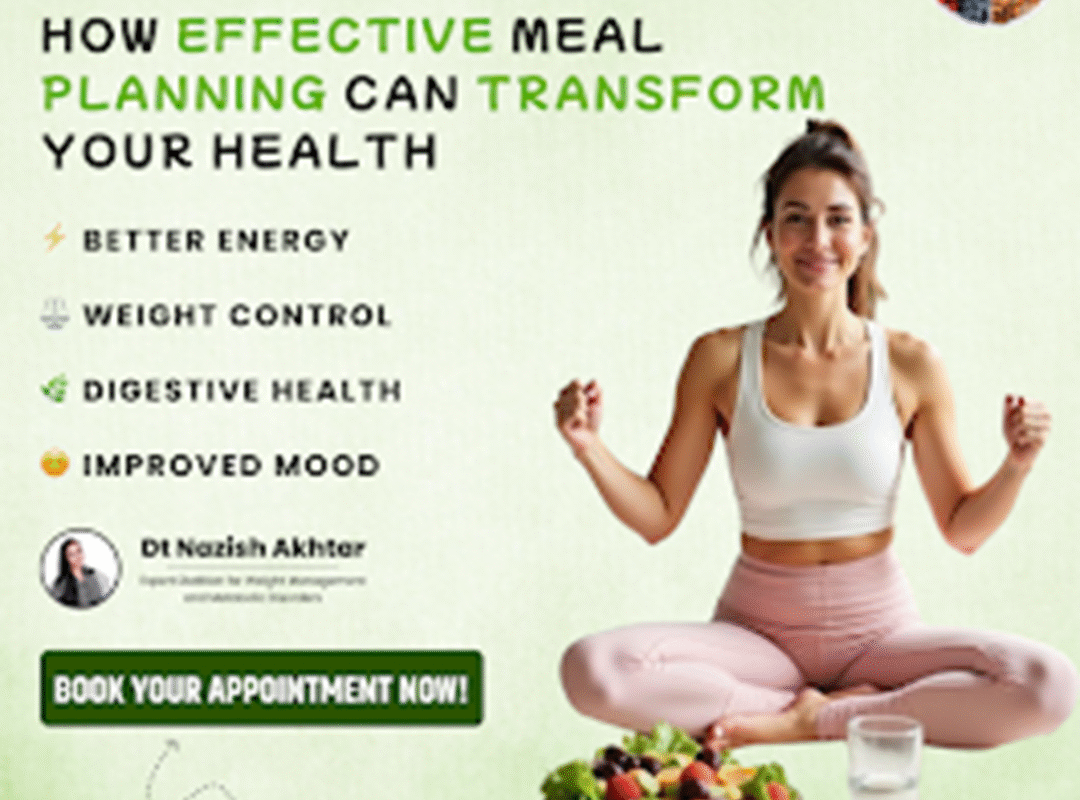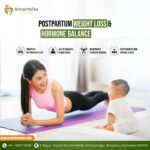If there’s one habit that can truly transform your health, energy, and relationship with food, it’s meal planning. Whether you’re a busy professional in Bangalore, a new parent juggling routines, or simply someone trying to eat better, planning your meals mindfully can help you stay consistent without feeling restricted.
At Smart Bite Nutrition, we’ve seen clients make incredible lifestyle shifts simply by changing how they approach food not by eating less, but by planning better. Let’s explore how effective meal planning can help you take control of your health, one plate at a time.
Why Meal Planning Matters More Than You Think
Most of us make food decisions when we’re tired, hungry, or stressed not exactly the best time for smart choices! This often leads to takeout orders, skipped meals, or late-night snacking.
Meal planning eliminates these impulsive choices by creating a structured, balanced approach to your daily nutrition. It’s not about rigid dieting; it’s about designing a flexible framework that supports your goals whether that’s weight loss, hormonal balance, muscle gain, or better gut health.
At Smart Bite Nutrition, we call it “intentional eating made simple.”
The Science Behind Meal Planning
Meal planning works because it aligns your body’s nutritional needs with your lifestyle. Here’s how it benefits your health on multiple levels:
- Balanced Nutrition – When you plan, you ensure every meal includes the right mix of proteins, healthy fats, complex carbs, and fiber.
- Steady Energy Levels – Planned meals prevent sugar crashes and keep your metabolism steady.
- Better Portion Control – You’re less likely to overeat when you pre-decide portions.
- Improved Digestion – Regular meal timing helps regulate your gut and reduces bloating.
- Reduced Stress Around Food – No more last-minute confusion about “What should I eat today?”
Meal planning gives structure to your day and freedom from food anxiety a win-win for your physical and mental well-being.
From Chaos to Clarity – How Smart Bite Nutrition Helps
At Smart Bite Nutrition Bangalore, we understand that everyone’s nutritional needs are unique. That’s why our approach to meal planning isn’t one-size-fits-all. Instead, we create custom meal frameworks based on your goals, body type, medical history, and food preferences.
Our process typically includes:
- Personalized Consultation – Understanding your routine, challenges, and health goals.
- Nutrient Mapping – Identifying where your current diet falls short.
- Smart Meal Plans – Structuring meals that are easy, practical, and enjoyable.
- Recipe Guidance – Offering simple, local, and sustainable meal ideas.
- Tracking & Adjustments – Regular follow-ups to keep you on track.
We believe that food should be flexible and enjoyable, not a source of guilt or pressure. That’s why our clients love how meal planning at Smart Bite fits into real life, not the other way around.
How Meal Planning Transforms Everyday Health
Let’s look at some real transformations we’ve seen among our clients:
- Better Energy & Focus: Office-goers who previously skipped breakfast now report sharper concentration and reduced fatigue.
- Weight Management: Those who plan weekly meals see more consistent weight results compared to those following crash diets.
- Digestive Relief: Balanced meal timing reduces acidity and bloating.
- Improved Mood: Eating at regular intervals stabilizes blood sugar, which positively affects mood and mental clarity.
The secret? Predictability and consistency. When you feed your body on time with the right nutrients, it learns to function optimally, no extremes, no stress.
A Holistic Approach to Health
Meal planning is more than just scheduling food it’s about taking mindful control of your wellness. When paired with hydration, physical activity, and emotional balance, it becomes a sustainable lifestyle rather than a short-term fix.
At Smart Bite Nutrition Bangalore, we empower clients to make meal planning a joyful routine. Whether your goal is to manage weight, balance hormones, or simply eat more mindfully, our expert dietitian in Bangalore design meal plans that feel personal, practical, and delicious.
Ready to Begin Your Smart Bite Journey?
Your health transformation doesn’t start with a diet, it starts with a plan.
With Smart Bite Nutrition, you’ll discover how simple, consistent, and enjoyable meal planning can redefine your energy, mood, and body composition.
Start your personalized meal planning program in Bangalore today and experience what it means to eat with intention, not impulse.
Because at Smart Bite Nutrition, we believe the best results come not from restriction — but from strategy.









